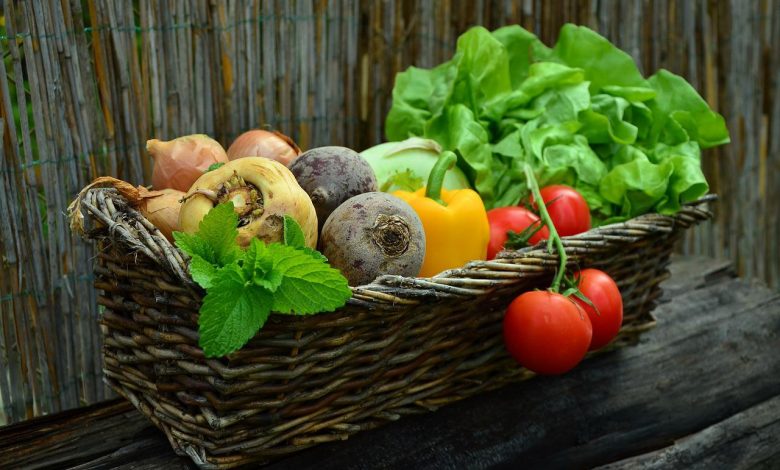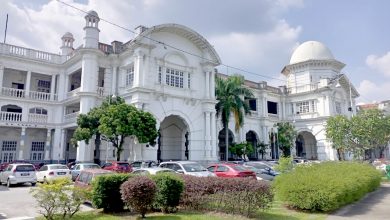

By Joachim Ng
Are Malaysians eating their way to greater poverty with our heavy reliance on more costly overseas food made even pricier by a slumping ringgit? Our food import bill is 64% higher than our food export revenue, leaving us with a yearly deficit of more than RM20 billion. A hefty one-third of our fruits and almost two-thirds of our vegetables are imported, although Malaysia is rich in fertile agricultural land.
Food security has jumped the queue lining up for attention, as around the world there is growing fear that war, economic sanctions, disease lockdowns, and climate change are disrupting global supply chains. India, a major agricultural producer, has banned wheat exports as scorching heat waves stunt output and push local prices to record highs. We will have to pay more for bread, capati, roti canai, pasta, mee, and biscuits.
Climate change disrupts local supply as well, and Malaysia lost RM90.6 mil in agricultural products during the massive December floods that hit many states including Perak. EMIR Research has made some policy recommendations that the Government should consider implementing, including the empowerment of small-scale farmers and utilisation of idle land to grow food crops.
But even as EMIR’s published papers make impressive reading, vegetable farms may be disappearing from the pages forever. A recent video doing the rounds lamented that small vegetable farmers in 11 areas in Perak are facing eviction, as they do not have title to the land on which they are growing their crops, although their families had been tilling the earth since the 1930s.
In 1974, the Government under Tun Abdul Razak emphasised the use of land for growing food products instead of prioritising land ownership rights. So under the Green Book Plan it endorsed farming activities on any vacant land and farmers were incentivised to produce food.
Fast-forward to present days and we are reading the Grey Book Plan: cement everything that looks green except padi fields, playing fields, and plantations. In the new chapter on land use, vegetable farm lots which are usually just 1 hectare (2.47 acres) or less in size are ripe as tomatoes for easy picking by corporations that care nothing for leafys.
With vegetable farmers getting eviction notices from the authorities, it is obvious that food-related agriculture merits no priority. As media doyen Johan Jaaffar has opined: “We are so enamoured with all things massive and mega that we almost forgot that people need to eat.”
Some 46,000 hectares of farmland throughout Malaysia are lying idle because of ownership issues. In comments to the media, economist Tan Sri Ramon Navaratnam says Malaysia needs “a rigorous agriculture-based policy to ensure food security is a priority” and consumer protection advocate Saravanan Thambirajah has called for reduction of dependence on food imports.
Let’s focus on vegetables. Why are they essential? The sharp answer is that if you cut veggies out of your diet, the surgeon will have to cut you open to do a heart job. You can do without that new factory, but you can’t do without that old leafy. An American scientific team researched five dietary patterns in 2017 and found that only a plant-dased diet of dark leafy vegetables, fruits, beans, and fish could reduce your risk of heart failure.
A plant-based diet also reduces your risk of getting cancer, especially colon cancer. It does this by providing you with antioxidants to fight off free radicals that damage your body cells. These antioxidants include:
Vitamin E: whole grains, nuts, green leafy vegetables. Vitamin C: green vegetables, tomatoes, oranges, grapefruits. Beta-carotene: fruits, grains, carrots, squash, spinach, and other green veggies. Lycopene: cooked tomatoes. Selenium: onions, garlic, nuts, soybeans, seafood. Flavonoids: green tea, grapes, red wine, apples, chocolate, berries. Omega-3s: salmon, tuna, sardines, walnuts. Omega-6s: vegetable oils, nuts, poultry.
Why not take antioxidant pills and send these farmers into retirement? Nope. Long-term studies on tens of thousands of people show that antioxidants in pill form don’t lower your odds of bad health. People who took them got heart disease, cancer, and cataracts at the same rate as those who didn’t. Here are some locally grown favourites:
Ginger is tops as it helps prevent cancerous tumour growth, lowers bad LDL cholesterol, stimulates blood circulation, prevents formation of blood clots, wards off migraine, may help to prevent cancer and aging disorders, and can be used to treat muscular disorders.
Garlic is another antioxidant as it has Vitamin C and is also rich in B6 that is good for your nerves, antibodies and red blood cells. Garlic also contains allicin that displays antibacterial, antifungal, antiparasitic and antiviral properties.
Onions are rich in flavonoids and other phytochemicals that have anti-inflammatory, anti-cholesterol, anticancer and antioxidant properties.
Sweet potato is a potent antioxidant and cancer fighter. Its Vitamin B6 helps prevent heart attacks while its vitamins D and C rid the body of cancer-friendly free radicals and build a strong heart. Its iron and magnesium also strengthen immunity and the heart. Purple potato, baked, has been observed in studies to hinder the spread of colon cancer stem cells and may even destroy them entirely.
Capsicum is not only rich in Vitamin C and antioxidants, it fights rheumatoid arthritis and helps to build collagen for good skin. Its beta-cryptoxanthin, carotenoid and lycopene contents lower the risk of lung cancer, prostate cancer, and cancers of the cervix, bladder and pancreas.
Even if you’re not a vegetarian, load up on vegetables before all the farms are gone. Should that happen, you will have to grow veggies yourself if you have a terraced house with a bit of land. If you live in a condo, you will need to convert your balcony or living room into a hydroponic garden.
Better still, persuade the State Government to preserve as many vegetable farm lots as it can. Beyond preservation, the authorities can enhance the quality of food by incentivising farmers to use pesticides based on natural compounds and weed out synthetic pesticides in stages. Evidence has surfaced that the residues of synthetic pesticides are associated with certain types of cancer.
Save the farms to save your own good health.
Disclaimer: The views and opinions expressed in this article are those of the author and do not necessarily reflect the official policy or position of Ipoh Echo


